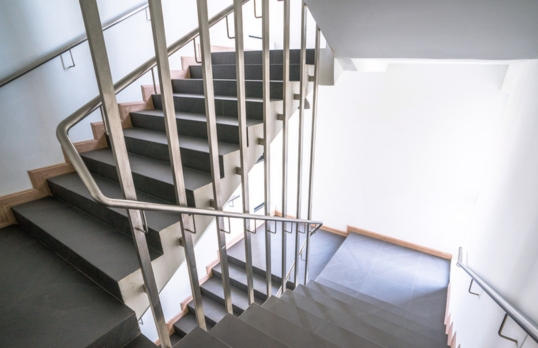This week (8 July 2019), RIBA Executive Director for Professional Services Adrian Dobson warned MPs on the Housing, Communities and Local Government Select Committee that “regulations and guidance remain as ambiguous as they were before the fire”. The committee – consisting of MPs from across the political spectrum – invited key stakeholders including building and fire safety experts to discuss the government’s recent proposals and progress on building regulations and fire safety. The RIBA were called to give evidence alongside Roy Wilsher (National Fire Chiefs Council) and Dr Jonathan Evans (Ash & Lacy).
UK government commissioned Dame Judith Hackitt to carry out an Independent Review of Building Regulations and Fire Safety (the Hackitt Review) in the immediate aftermath of the Grenfell Tower fire in June 2017. The Hackitt Review was published in May 2018 and consisted of a number of recommendations to UK Government, who last month (June 2019) published their response to this review. ‘Building a Safer Future’ contains the government’s proposals for a new building safety regulatory system.
Following the tragedy at Grenfell Tower, MPs on the Select Committee have scrutinised government action surrounding building regulations with a particular focus on cladding and combustible materials. In this session, MPs asked about the adequacy of the ban on combustible materials that was introduced in May 2018. Adrian stated that although the ban is welcome, many buildings in England remain covered in combustible materials. He emphasised the comparison between regulations in England to those in Scotland, stating “there was universal agreement that there were more vulnerable buildings” in Scotland, whereas the ban of combustible materials in England currently only applies to residential buildings. This leaves out a number of ‘high-risk’ buildings such as schools, hospitals and care homes, with thousands of vulnerable people in these buildings in danger of another tragedy occurring each day.
When asked about sprinkler systems, the RIBA Executive Director expressed disappointment in the government’s lack of progress in implementing a requirement for such systems in high-rise buildings, highlighting that this reform is not just valued by the RIBA, but across the industry. Adrian stated the importance for the requirement of sprinkler systems in high-rise buildings as “a relatively straightforward means of improving fire safety” that could be a key part of suppression in the event of a fire, a statement supported by fellow panellists. He went on to demonstrate that England was yet again lagging behind other countries when it comes to basic fire safety regulation, stating that a mandatory requirement for sprinkler systems in Wales introduced in 2016, had not inhibited development at all and therefore questioned why this is yet to happen in England.
The Committee went on to question panellists on the recent government proposals for a new building safety regulatory system and the consultation that has followed. Adrian expressed the RIBA’s support for the consultation and certain proposals, specifically a reduction of the height threshold (from 30m to 18m) for buildings that these regulations will apply to. He noted however, that this was just one part of the equation and that these proposals still only apply to residential buildings, leaving out other ‘high-risk’ buildings such as schools, care homes and hotels.
The RIBA will be responding to this consultation in the next few weeks. Read more about what we have done so far.









